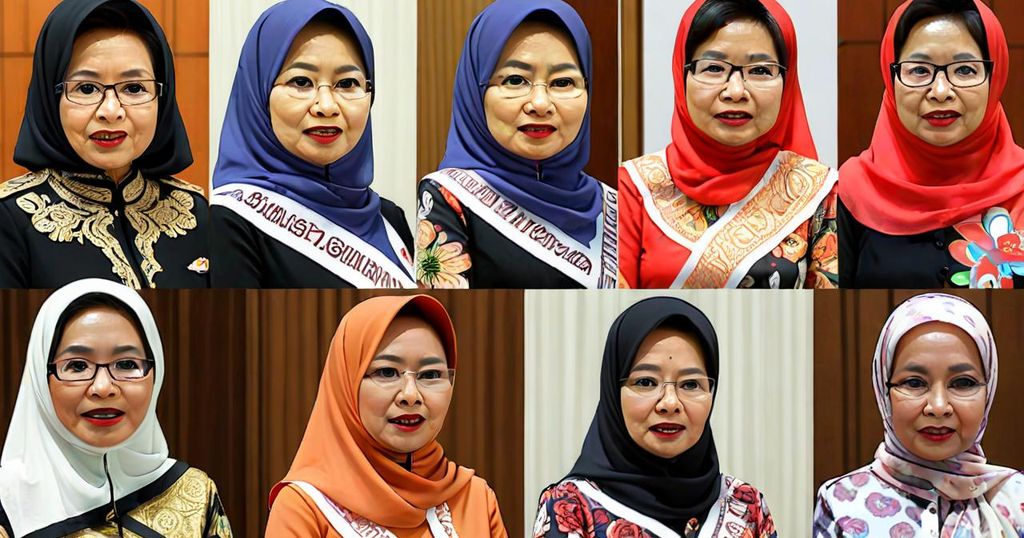In the forthcoming Indonesian election next month, a majority of the candidates are men, reflecting the male-dominated political landscape in the country. However, a growing movement of women is challenging the status quo and striving to make their mark in a political arena long overshadowed by patriarchal elites.
With over 200 million eligible voters, slightly more than half of whom are women, the Feb. 14 election has the potential to usher in a new era of gender equality in Indonesian politics. Despite the significant female voter demographic, only a few women currently hold positions in the parliament, highlighting the urgent need for increased female representation in the government.
Lingga Permesti, a legislative candidate from the town of Klaten, emphasized the abundance of dedicated and capable female politicians in Indonesia. However, she also acknowledged the prevalence of stereotypes that portray women as weak and lacking in leadership qualities, which continue to hinder women from fully participating in the political sphere.
The underrepresentation of women in Indonesian politics is a systemic issue that extends beyond the election campaigns. It is rooted in deeply entrenched cultural and social norms that perpetuate gender discrimination and limit the opportunities available to women in the political arena. As a result, women face numerous barriers in their pursuit of political office, making it crucial to address the underlying factors that impede their participation.
Efforts to advance gender equality in politics require comprehensive and sustained action. This entails challenging traditional gender roles, combating stereotypes, and implementing policies that promote inclusivity and diversity in political leadership. By elevating the voices of women in politics, Indonesia can cultivate an environment that embraces and values the contributions of all its citizens, regardless of gender.
Empowering women in politics and ensuring their meaningful participation is not only a matter of social justice but also a prerequisite for achieving sustainable development and prosperity in Indonesia. Research has shown that gender-balanced leadership leads to more effective governance and decision-making, as diverse perspectives contribute to comprehensive and well-informed policy outcomes.
As the upcoming election approaches, it is imperative to recognize the importance of gender equality in political representation and to support the aspirations of women who seek to break into the male-dominated political landscape. By advocating for and championing the rights of women in politics, Indonesia can harness the full potential of its entire population and pave the way for a more equitable and inclusive society.
In conclusion, the journey toward greater female representation in Indonesian politics is ongoing, and the upcoming election presents an opportunity to advance this important goal. By challenging existing barriers and fostering an environment that values diversity and inclusivity, Indonesia can build a political landscape that reflects the richness and diversity of its population. It is imperative to support the endeavors of women who aspire to bring about positive change and to work collectively toward the realization of a more gender-equal political future.

Leave a Reply